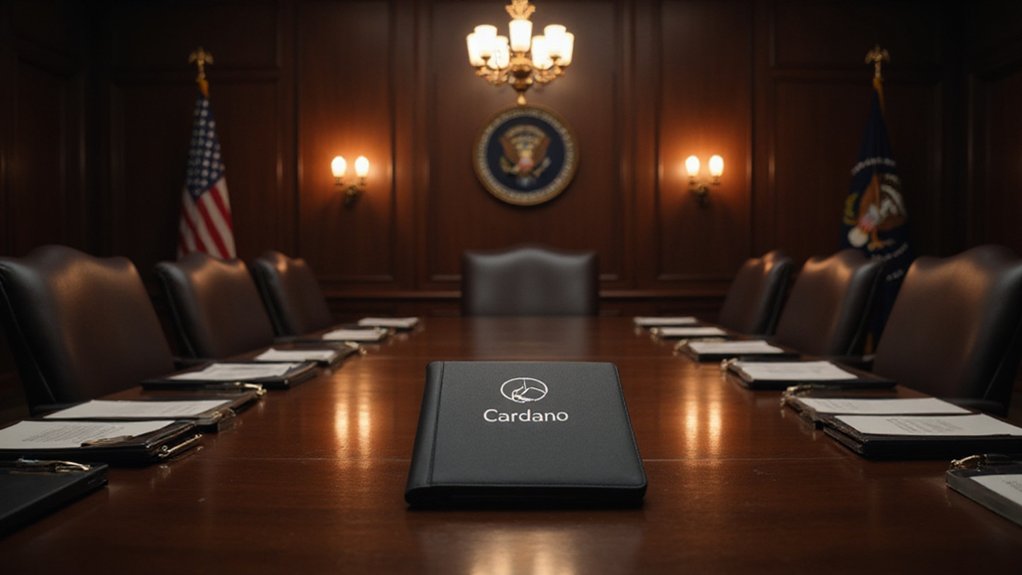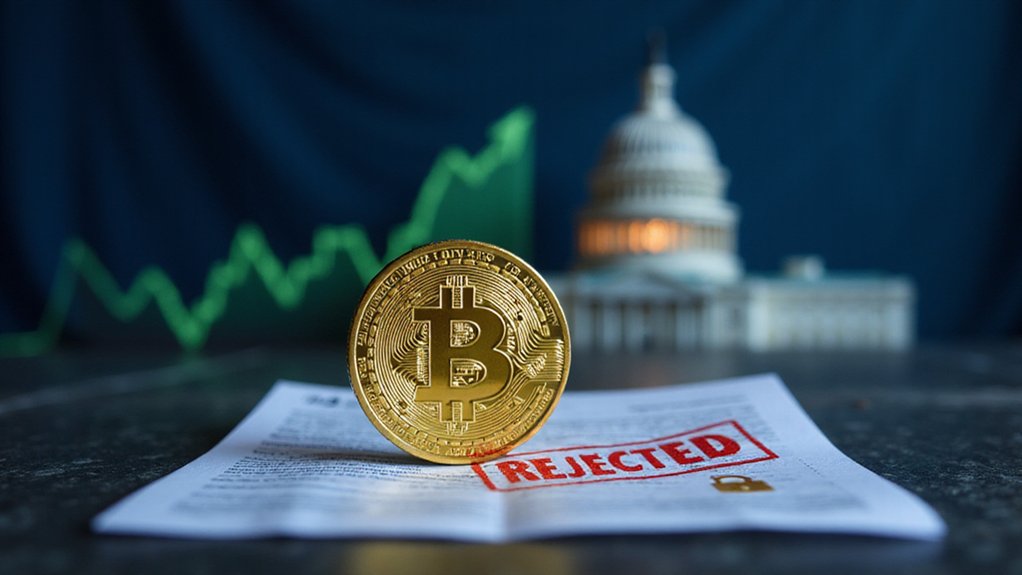Despite Cardano's ADA token being included in Donald Trump's proposed crypto reserve strategy, Cardano founder Charles Hoskinson was significantly absent from the White House Crypto Summit scheduled for March 7, 2025. The much-anticipated event, organized by the Trump administration, aims to shape U.S. cryptocurrency policy and outline the administration's crypto reserve strategy. Hoskinson confirmed his exclusion during a March 6 broadcast, creating a wave of discussion throughout the cryptocurrency ecosystem.
ADA's inclusion in Trump's crypto reserve contrasts sharply with Hoskinson's exclusion from policy-shaping summit discussions.
A White House source attributed Hoskinson's absence to his perceived lack of policy influence, despite ADA's substantial $35.6 billion market capitalization. The token recently experienced a 100% price surge to $1.14 following Trump's announcement about its inclusion in the proposed crypto reserve via Truth Social. This contradiction—ADA's inclusion in the reserve while its founder remains excluded from policy discussions—highlights the complex relationship between cryptocurrency projects and governmental decision-making processes. The exclusion has sparked concerns about the inclusivity of discussions that could shape future regulations.
Hoskinson downplayed the summit's significance in his public response, emphasizing that substantive policy work occurs primarily through the legislative branch. "We're continuing our collaborative efforts with lawmakers to push for regulatory clarity," Hoskinson stated, noting he was unaware of ADA's inclusion in the reserve until the public announcement. His dismissal reflects his belief that the summit is overhyped compared to actual legislative efforts.
The guest list features prominent industry figures including MicroStrategy's Michael Saylor, Coinbase's Brian Armstrong, Kraken's Arjun Sethi, Robinhood's Vlad Tenev, and Ripple's Brad Garlinghouse. Their collective presence underscores the event's significance for the future of U.S. cryptocurrency regulation.
This selective invitation process raises questions about comprehensive representation in high-level policy discussions. Industry observers express concern that limited participation may restrict the diversity of perspectives informing regulatory frameworks.
The summit's outcomes could significantly impact cryptocurrency development trajectories and market dynamics in coming years, potentially shifting U.S. policy direction while raising questions about the criteria for government engagement with industry leaders.





